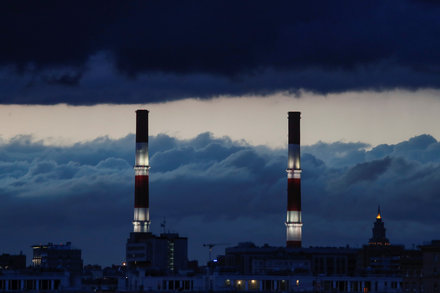The linked news article was the ONLY one that showed up in a "cyber attack by usa" search on duckduckgo that was what i was looking for. all the rest where "Russian hackers stole us data" or some other such thing.
just another way media is demonizing forien powers while completely ignoring the exact same stuff the US does
The question now is whether placing the equivalent of land mines in a foreign power network is the right way to deter Russia. While it parallels Cold War nuclear strategy, it also enshrines power grids as a legitimate target.
“We might have to risk taking some broken bones of our own from a counterresponse, just to show the world we’re not lying down and taking it,” said Robert P. Silvers, a partner at the law firm Paul Hastings and former Obama administration official. “Sometimes you have to take a bloody nose to not take a bullet in the head down the road.”
Some of you might die, but that is a risk I'm willing to take
enshrines power grids as a legitimate target
Check out what the US did to the civilians of Iraq during the Gulf War. (Might be paywalled. I pay for nytimes because I'm a lib.)
Here are the highlights:
The assessment indicates that Iraq's electrical power industry may have been damaged well beyond the intentions of allied war planners, who developed a still-secret weapon that dropped thousands of metallic filaments onto the electrical network at key points to create huge short-circuits and blackouts on the night of January 17th, when the war began. This was followed by precision strikes on power plants.
In addition, allied warplanes wrecked Iraq's civilian telecommunications system, described as a total loss by one estimate; and the bombing campaign seriously damaged the national network of roads and bridges, crippling commerce
The Bush Administration's internal findings parallel those reported by a special United Nations mission to Iraq in March, which concluded that because of the damage inflicted on it, "Iraq has, for some time to come, been relegated to a pre-industrial age, but with all the disabilities of post-industrial dependency on an intensive use of energy and technology."
the Pentagon appears to have miscalculated the multiplying effects on public health of its large-scale destruction of Iraq's electricial power system, which fed civilian as well as military industries.
The system powered water purification and sewage treatment plants, the loss of which led to a sharp increase in disease during and after the war.
A report issued by a Harvard University study team this month said that "the collapse of electrical generating capacity has been a crucial factor in this public health catastrophe." The team predicted tens of thousands of additional war-related deaths by the end of the year, a finding the Administration has not disputed. "Without electricity, hospitals cannot function, perishable medicines spoil, water cannot be purified and raw sewage cannot be processed," the study team's report said.
Later investigations estimated the civilian death toll to be at least 200,000.
Gen. Paul M. Nakasone, has been outspoken about the need to “defend forward”
That's some prime doublespeak.
Officials at the National Security Council also declined to comment but said they had no national security concerns about the details of The New York Times’s reporting about the targeting of the Russian grid, perhaps an indication that some of the intrusions were intended to be noticed by the Russians.
Admitting to asking the state for permission to publish information lol
It's like everybody forgot the Snowden leaks.
Experts Unmask 'Regin' Trojan as NSA Tool


